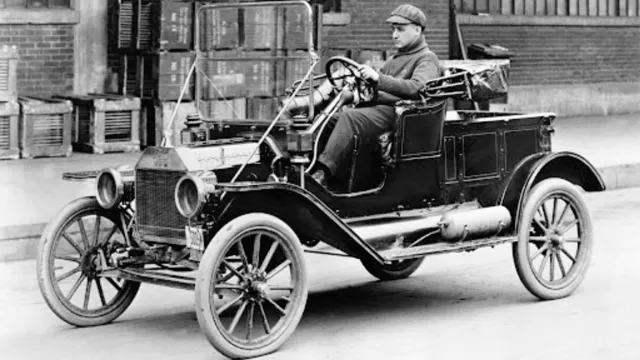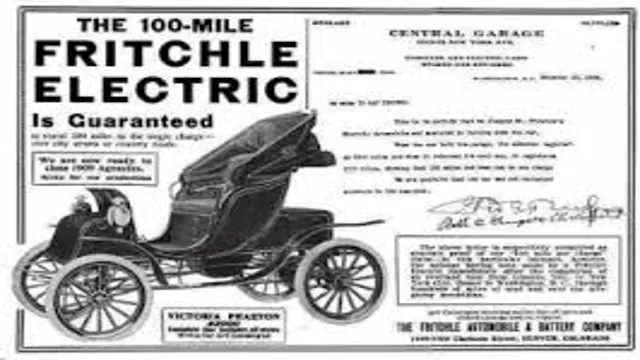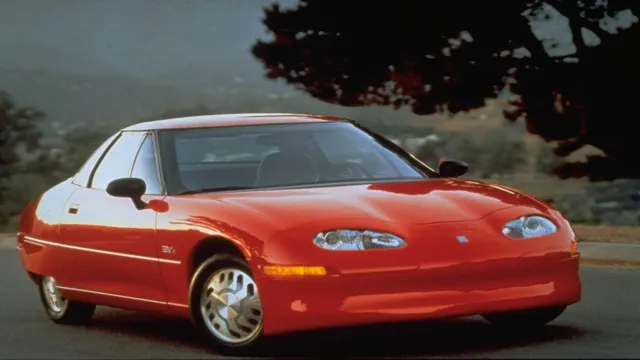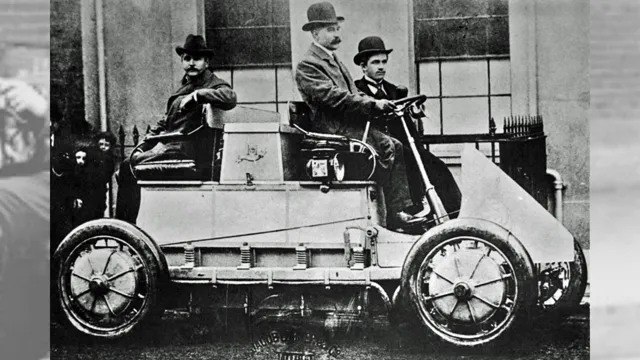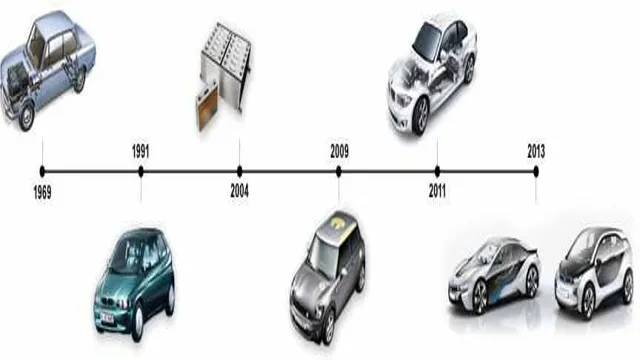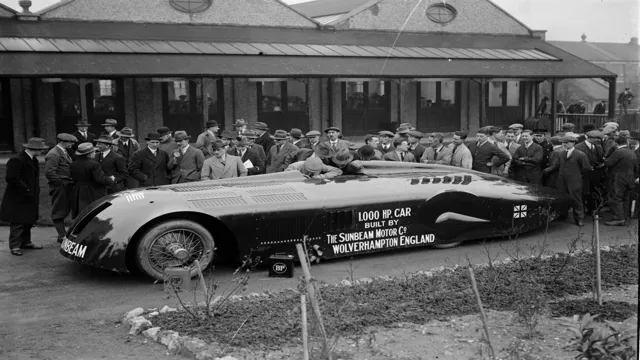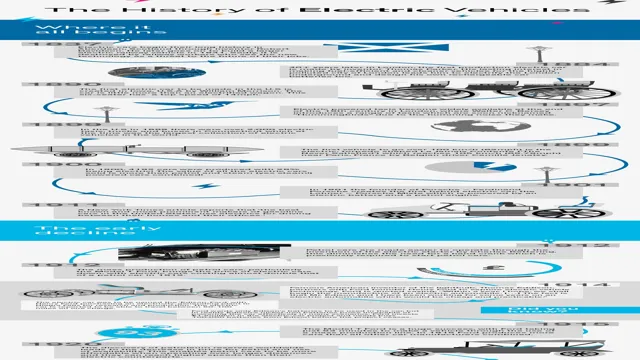The Shocking Evolution of Electric Cars: Explore the Fascinating History through our PPT Presentation
Electric cars have been the buzz for many car enthusiasts, environmentalists, and government entities for over a decade. The interest and debate surrounding electric cars revolve around the technology, the environment, and the history of the innovation. In this blog post, we will take a trip down memory lane and look at the history of electric cars.
Did you know that electric cars were not always just a futuristic concept? This blog post will enlighten you on the origin, evolution, and present state of electric cars and also provide you with a comprehensive Electric Car History PPT. Get ready to delve into the past to understand the present and appreciate the future of electric cars.
Early Days of Electric Cars
Electric car technology has been around for over a century, dating back to the early days of automobiles. In fact, the first electric cars were developed back in the late 1800s and early 1900s. However, gas-powered vehicles quickly became the preferred choice due to their ability to travel longer distances than the electric counterparts.
It wasn’t until the oil crisis of the 1970s that electric cars saw a resurgence in popularity. Advances in battery technology helped to improve the range of electric cars, but they still faced limitations compared to gas-powered vehicles. In recent years, the demand for electric cars has grown significantly, and modern electric cars are capable of traveling much further than their early predecessors.
With advancements in electric car technology and the push for sustainable transportation, it’s exciting to see what the future holds for the electric car industry.
Invention of the First Electric Car
The early days of electric cars date back to the late 1800s. The invention of the first electric car is credited to Thomas Davenport, an American inventor, who built a small locomotive that ran on electricity in 183 However, it was not until the late 1800s that electric cars gained popularity as a viable alternative to gas-powered vehicles.
In 1891, William Morrison, a chemist from Des Moines, Iowa, built the first successful electric car in the United States. The car had a range of about 13 miles and could reach speeds of up to 14 miles per hour. Electric cars were popular among the wealthy during this time because they were quiet, clean, and easy to drive.
They were also seen as a status symbol. Electric cars faced competition from gas-powered vehicles, which were becoming more affordable and easier to operate. As a result, the number of electric cars on the road decreased, and they became less popular over time.
However, the growing concern over environmental pollution and the need for sustainable transportation has brought electric vehicles back into the limelight, and they are now seen as a key solution for a greener future.
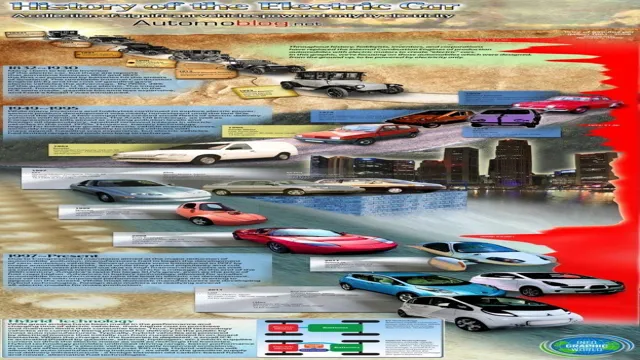
Popularity and Decline in the Early 1900s
The early 1900s was a time of great change in the automotive industry, with the introduction of electric cars bringing a new level of excitement to the market. These cars were initially popular due to their lack of noise and emissions, making them appealing to environmentally conscious consumers. However, the high cost of batteries and limited range contributed to their decline in popularity.
As gasoline-powered cars became more affordable and efficient, electric cars were seen as impractical and outdated. Despite this, electric cars never completely disappeared from the market, and their popularity has seen a resurgence in recent years thanks to advancements in battery technology and a renewed focus on environmental sustainability. With more and more consumers looking for eco-friendly transportation options, electric cars are once again becoming a popular choice on the road.
Revival of Electric Cars
Electric cars have come a long way since their inception in the late 1800s. After a few decades of popularity in the early 20th century, the market for electric cars dwindled due to the availability of gasoline-powered vehicles and the discovery of oil reserves. However, with the rise of concerns about climate change, air pollution, and the limited supply of fossil fuels, electric cars are once again gaining popularity.
Electric car history ppt presentations showcase the evolution of electric cars from early models to modern electric cars, which have advanced features like longer battery life, regenerative braking, and faster charging times. Furthermore, countries around the world are offering incentives like tax credits and rebates to promote the adoption of electric cars. With the revival of electric cars, we have a glimmer of hope for a sustainable future that’s both eco-friendly and convenient.
Environmental Movement and Oil Crisis
The environmental movement of the 1970s and the oil crisis of the same decade led to a revival of interest in electric cars as a potential solution to society’s dependence on fossil fuels. With the threat of climate change looming and the realization that oil reserves were finite, many people started to look for alternative transportation options that were more sustainable. Electric cars, which had been around since the early 1900s, suddenly became an attractive choice.
However, the technology was not yet advanced enough to make electric cars a viable option for the average driver. Batteries were heavy and expensive, and the range of the cars was limited. It wasn’t until the 21st century that electric cars started to become more attainable, with advances in battery technology allowing them to be lighter, cheaper, and have a longer range.
Today, electric cars are a growing market, with more and more people choosing them as a way to reduce their carbon footprint and help combat climate change.
Launch of Modern Electric Vehicles
The launch of modern electric vehicles marks a revival of electric cars as a formidable option for drivers. In recent years, we have seen an increase in the popularity of electric vehicles due to advancements in technology and a shift towards more sustainable energy sources. The development of batteries with longer ranges, faster charging times, and more affordable price points has made electric cars a more practical option for everyday use.
Additionally, the increasing availability of public charging stations and government incentives for purchasing electric vehicles have made them more accessible for a wider range of consumers. It’s no longer just Tesla leading the charge, with established car manufacturers such as Chevrolet, Nissan, and Volkswagen all releasing their own electric car models in recent years. The future looks bright for electric cars as they continue to evolve and become a more convenient and eco-friendly alternative to traditional gasoline-powered cars.
Tesla and the Electric Car Revolution
Tesla has been at the forefront of the electric car revolution, and the company’s success has spurred a revival of electric cars around the world. With their sleek designs, impressive range, and advanced technology, Tesla’s electric vehicles have captured the attention of consumers and investors alike. But it’s not just Tesla that’s driving the resurgence of electric cars.
Major automakers like Ford, General Motors, and Volkswagen have invested heavily in electric vehicles, introducing their own models to compete with Tesla. Consumers are also becoming more environmentally conscious, and the rising cost of petrol has made electric cars a more attractive option. As a result, the market for electric cars is booming, and experts predict that it will continue to grow in the coming years.
It seems that the electric car revolution is here to stay, and companies like Tesla are leading the charge.
Future of Electric Cars
When it comes to the future of electric cars, there’s a lot to look forward to. In recent years, we’ve seen a surge in the popularity of electric vehicles, with a growing number of automakers investing in the development of eco-friendly alternatives to traditional gas-guzzlers. But the history of electric cars dates back much further than you might imagine.
While the first electric car was invented in the 1830s, it wasn’t until the early 2000s that we really started to see a shift towards electric vehicles. Today, electric cars are becoming more affordable and more accessible to everyday drivers, which means we’re likely to see an even greater adoption of these eco-friendly vehicles in the years to come. So if you’re interested in learning more about the history of electric cars, be sure to check out some of the many resources available, including the electric car history ppt that can give you a greater insight into the evolution of these amazing machines.
Prospects of Electric Car Industry
The future of electric cars looks promising as the industry takes strides towards innovation and sustainability. As technology continues to improve, electric cars are becoming more efficient, affordable, and practical for everyday use. With the increasing awareness of climate change, consumers are actively seeking out eco-friendly options, which has led to a surge in demand for electric cars.
The rise of charging infrastructure also boosts the electric car industry, making it easier for consumers to find charging stations on-the-go. However, there are still some challenges the industry needs to address, such as improving battery technology and reducing the cost of production. Despite these challenges, the future of the electric car industry looks bright, and it’s exciting to see how this innovative technology will transform the automotive industry.
Challenges Facing Electric Cars
The future of electric cars seems bright, but there are still many challenges that manufacturers and consumers face. One of the main challenges is the lack of charging infrastructure, making it difficult for electric car owners to embark on long road trips. Another hindrance is the affordability of electric cars, as they are still more expensive than traditional gas-powered vehicles.
Additionally, the issue of range anxiety, or the fear that an electric vehicle won’t make it to its destination without running out of power, still lingers in the minds of many drivers. However, there is hope as technology continues to advance, increasing the range of electric cars, and battery prices are slowly declining. As more and more countries pledge to become carbon neutral in the coming years, the demand for electric cars will only increase, pushing manufacturers to find solutions that make them more accessible.
Overall, while there are hurdles to overcome, the future of electric cars is looking promising.
Conclusion
In conclusion, the history of electric cars is a shining example of how technology can evolve and improve over time. From their humble beginnings in the early 19th century to the modern, sleek designs we see on our roads today, electric cars have come a long way. Their journey has been one of constant innovation, pushing the boundaries of what we thought was possible and shaping the future of transportation.
And who knows? With the rise of renewable energy, we may be witnessing a new era of electric cars, one that is cleaner, more affordable, and more accessible than ever before. So let’s embrace the past, celebrate the present, and look forward to the exciting future of electric cars!”
FAQs
What is the history of electric cars?
Electric cars date back to the early 19th century, when inventors began experimenting with battery-powered vehicles. However, it wasn’t until the late 1990s that electric cars began to gain more mainstream popularity.
How do electric cars work?
Electric cars operate using electric motors powered by rechargeable batteries. When the batteries are charged, the electric motor uses the energy stored in the batteries to power the vehicle.
What are the benefits of electric cars?
Electric cars offer numerous benefits over traditional gasoline-powered vehicles, including lower emissions, lower fuel costs, and quieter operation. They are also much more efficient, as they convert more of the energy stored in the batteries into usable power for the vehicle.
What are the limitations of electric cars?
While electric cars offer many benefits, they also have some limitations. One major limitation is their range, as most electric cars can only travel a certain distance on a single charge. Additionally, charging times can be lengthy, and electric cars can be more expensive upfront compared to traditional gasoline-powered cars.
